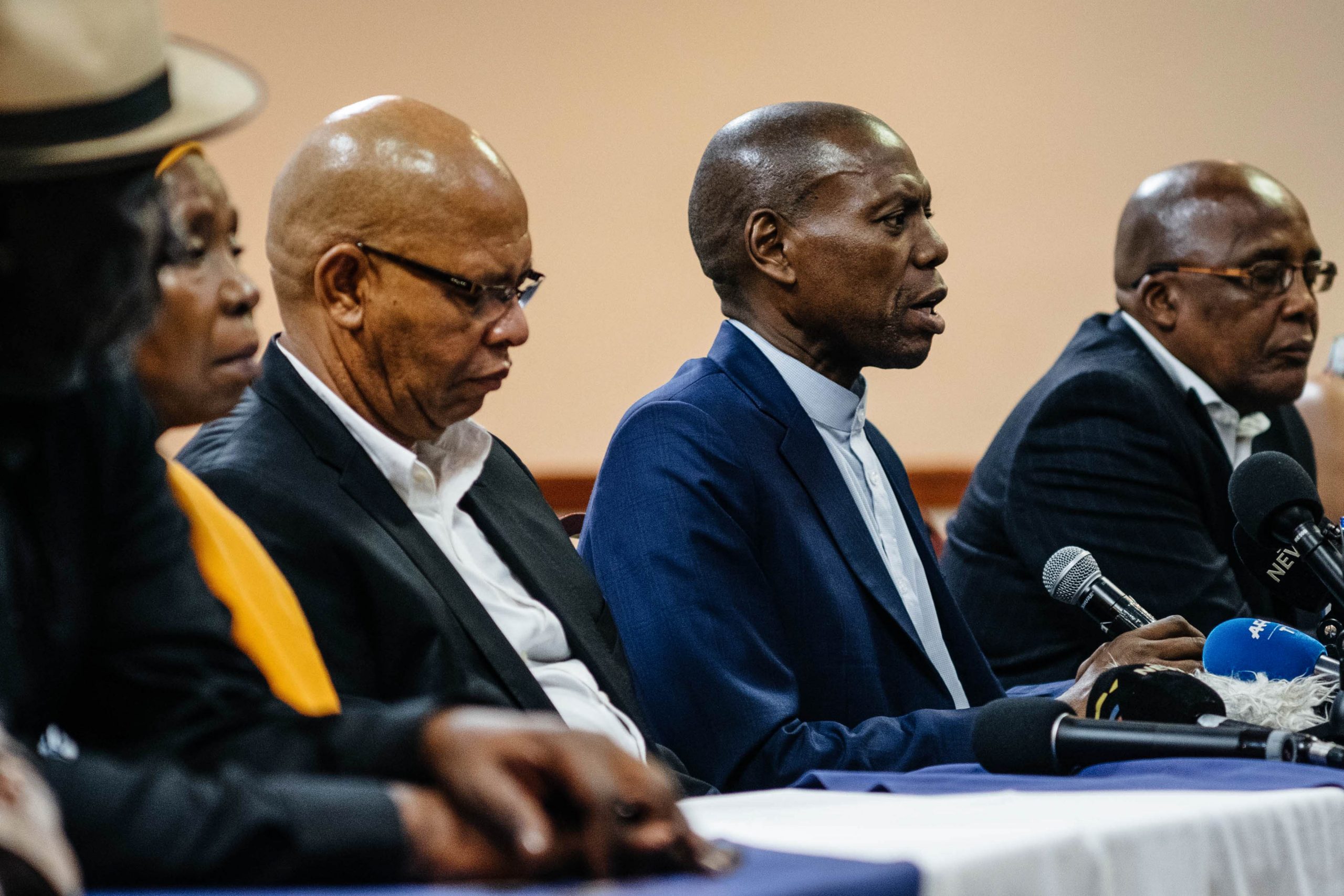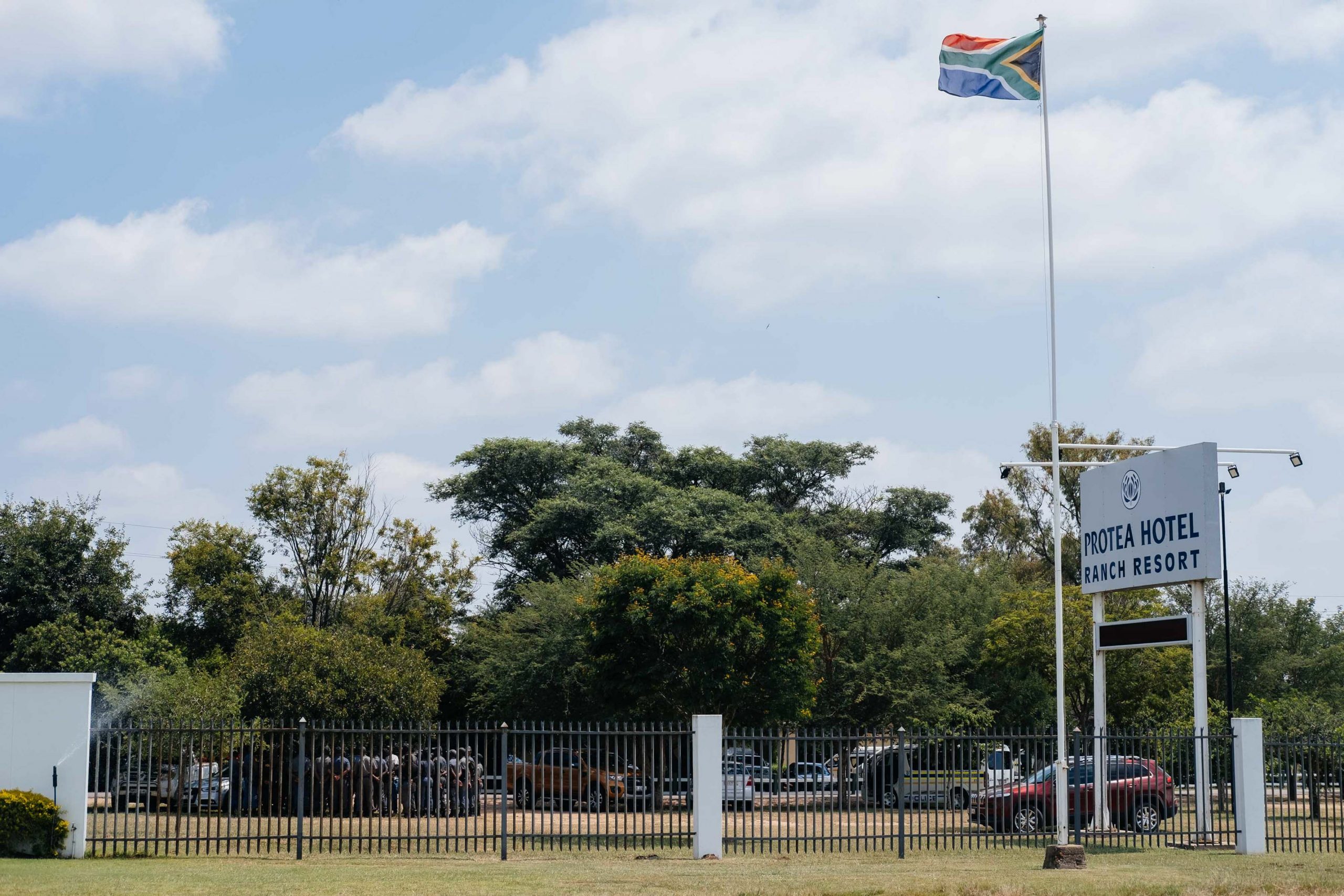Rural areas in need of coronavirus information
The government has said it has the resources to combat Covid-19. But with repatriated citizens from China set to be quarantined in Limpopo, residents are concerned about the lack of safety informat…
Author:
13 March 2020

A heavy police presence and armed members of the South African National Defence Force enveloped The Ranch Resort, a lush holiday destination about 20km from Polokwane in Limpopo. The resort is now a quarantine site for the 122 South Africans who will return from Wuhan, China, the epicentre of the coronavirus outbreak.
The repatriated citizens will be quarantined for 21 days, said Minister of Health Zweli Mkhize at a press briefing hosted by the interministerial committee on coronavirus and the Limpopo provincial government on Thursday 12 March. Mkhize said the repatriation was not based on the idea that the citizens might have symptoms of the virus or because South Africa has doubts over the state of health in China. “It was really based on humanitarian bases,” he said.
Mkhize emphasised that the citizens are not criminals so will not face any restrictions while at the resort, other than being prevented from seeing friends and family in person.
Amid distress and concerns from residents and the ANC Youth League in the province, Department of Health spokesperson Popo Maja told New Frame that the 122 South Africans are not infected with what is officially known as Covid-19. “They are not sick. Quarantine is a preventive measure recommended by the World Health Organisation.”

Waiting for information
“I don’t know how one can get coronavirus,” said Jacob Maake, a 44-year-old waste worker in Polokwane. Speaking in Sepedi, Maake lamented the lack of information on Covid-19 given to waste collectors. “I have only heard about it in passing,” he said, as he waited for the refuse collection truck. “I just hear people saying we must wash our hands. That’s all I know.”
Maake said no one at his workplace has been informed about the virus and that, because of the seriousness of Covid-19, they should be getting information from knowledgeable experts. “What the municipality must do is send those who know about the virus, and assemble people in one area and address them. I want to know how it spreads so that I can protect myself and be safe.”
He said safety is important to him because he collects waste every day. “I am concerned,” he said, adding that there are a lot of people in his workplace who are also in the dark about coronavirus.

Universities taking action
Benjamin Choshi, a first-year student at the Polokwane campus of the Tshwane University of Technology, watched an explanatory video on Covid-19 for the first time on Wednesday 11 March.
“I know that it is a communicable disease,” said the 25-year-old. It is through the video that Choshi knows about some of the symptoms of Covid-19: a cough, fever and shortness of breath. With the information he learnt online, along with that received from the university, he’s been able to help inform those in his hometown of Dendron, about 60km northwest of Polokwane.
Choshi suggested that the local government organise and host community meetings, where his peers who are not at educational institutes can get the relevant information.
Related article:
Phuti Mogale, 28, agreed with Choshi’s suggestion. He said the department should host seminars in public health facilities and invite the public. “It is not going to cost them. The venue is already theirs; they will not be paying a fee.
“Not everyone likes to read. Maybe inviting people to these facilities can help them to learn. It is time the government takes a step,” he said.
Mogale added that schools must assemble parents and inform them so that they can use that knowledge to help their children.

Limpopo’s preparedness
The government has identified Polokwane Provincial Hospital as the facility where those infected with Covid-19 will be quarantined and treated. The entrance to the administration area was full, with patients and relatives sitting under trees, in wheelchairs and leaning against the hospital walls.
Eight pamphlets about Covid-19 were lying scattered on a dirty bench at the back of a waiting room. “Did you know of coronavirus infection?” read one of the pamphlets, which featured the face of Limpopo member of the executive council for health Phophi Ramathuba.
Limpopo Premier Stanley Mathabatha said the department is printing pamphlets to distribute over the weekend. He added that close to a million copies would be given to the St Engenas Zion Christian Church to distribute at services.

The Limpopo health department is using its usual communication channels, including workshops and community meetings, in addition to the media to spread information about the coronavirus to residents. “Our health promotions are on the ground, and we have printed and distributed materials for social media in all our official languages spoken in Limpopo,” said spokesperson Neil Shikwambana.
“We are also working with our port health [staff] to ensure that screening at our borders with our neighbouring countries is done at all times,” he said.

Update, 18 March 2020:
On 14 March, 114 South African citizens landed at the Polokwane International Airport in Limpopo. Some with a high temperature remained in China to mitigate the risk of potential transmission.
Minister of Health Zweli Mkhize announced on 17 March that all 114 repatriated citizens had tested negative for Covid-19.
The Limpopo government has also started distributing pamphlets in the province to inform residents about the coronavirus.

